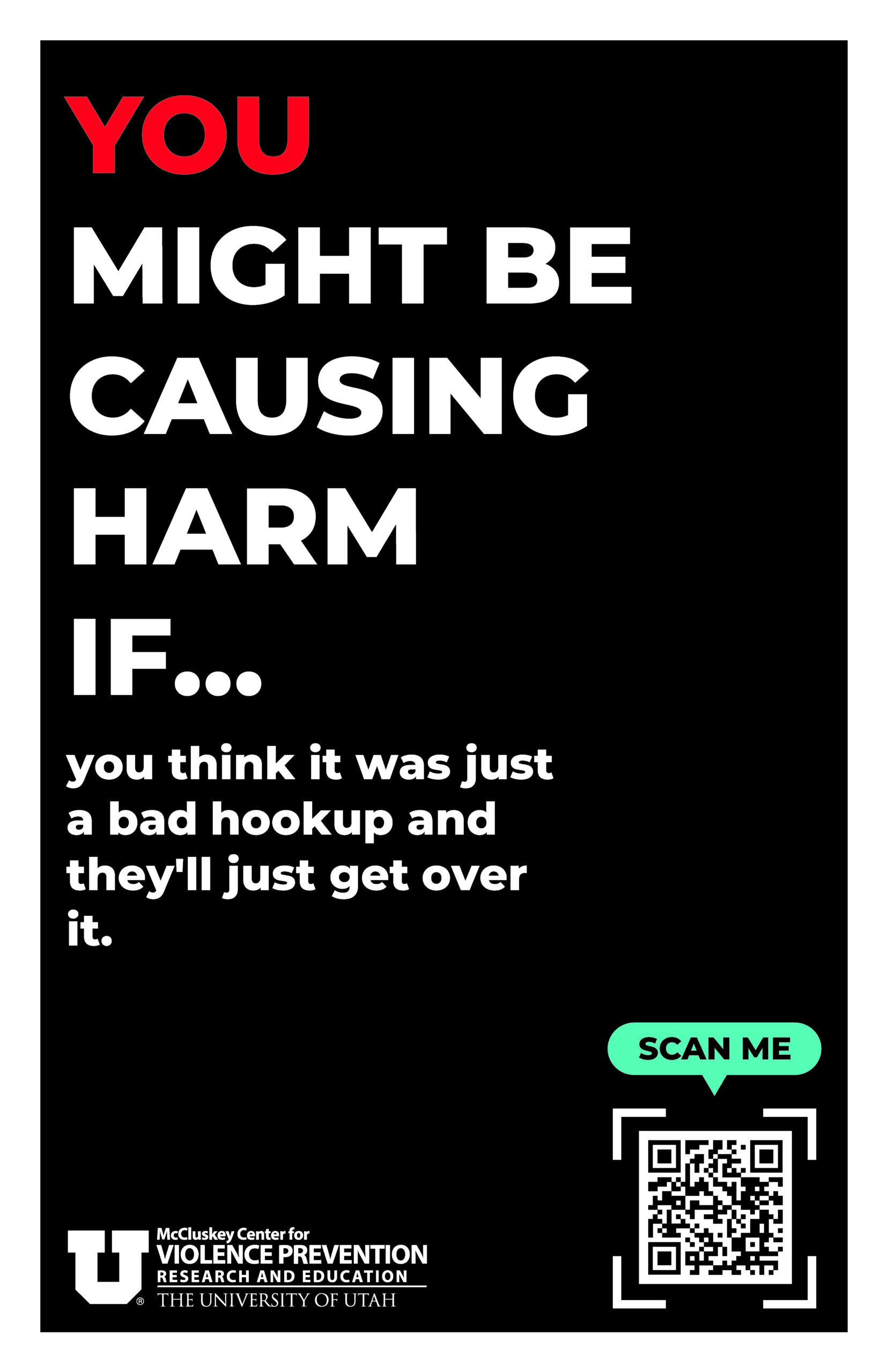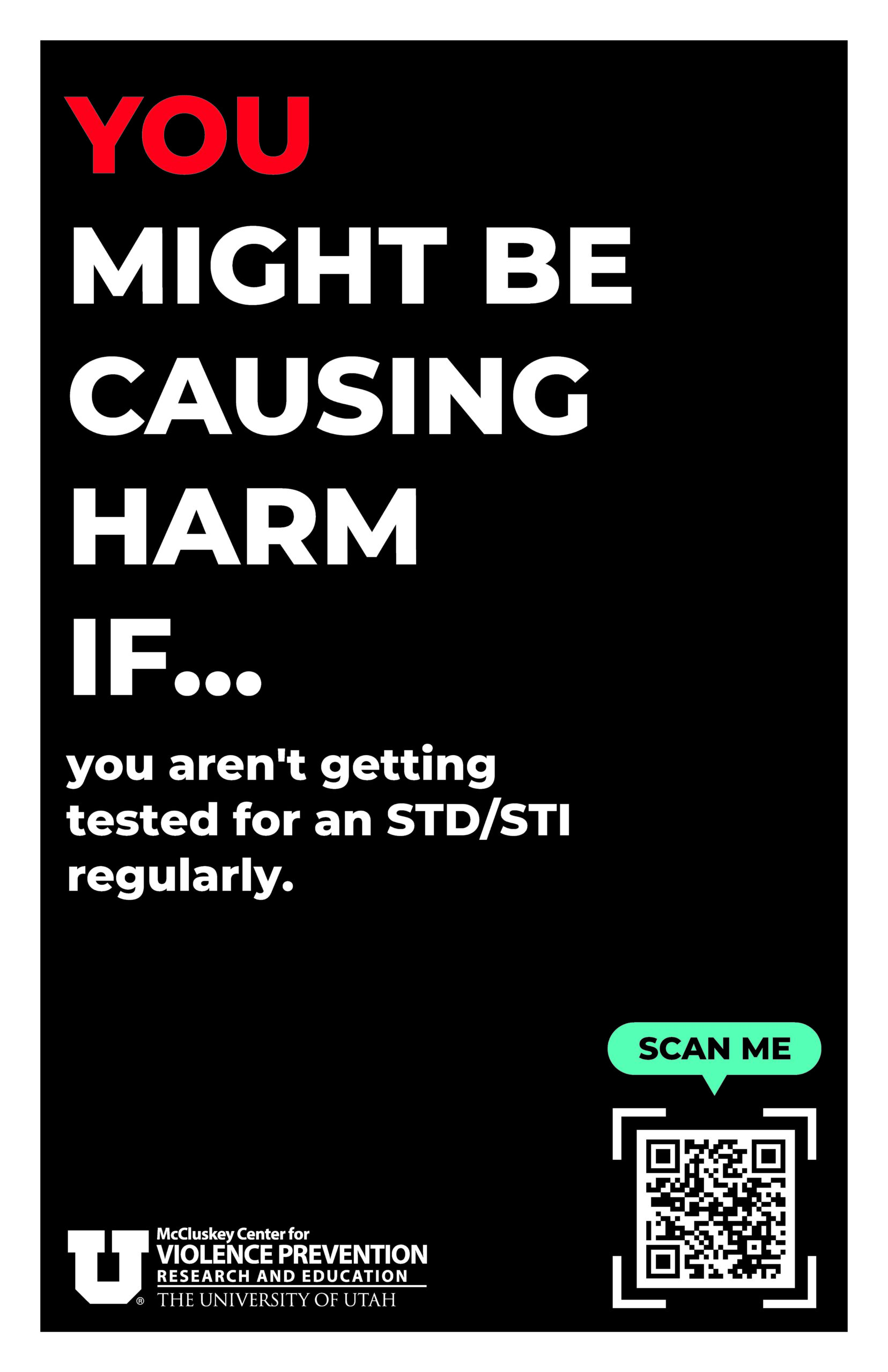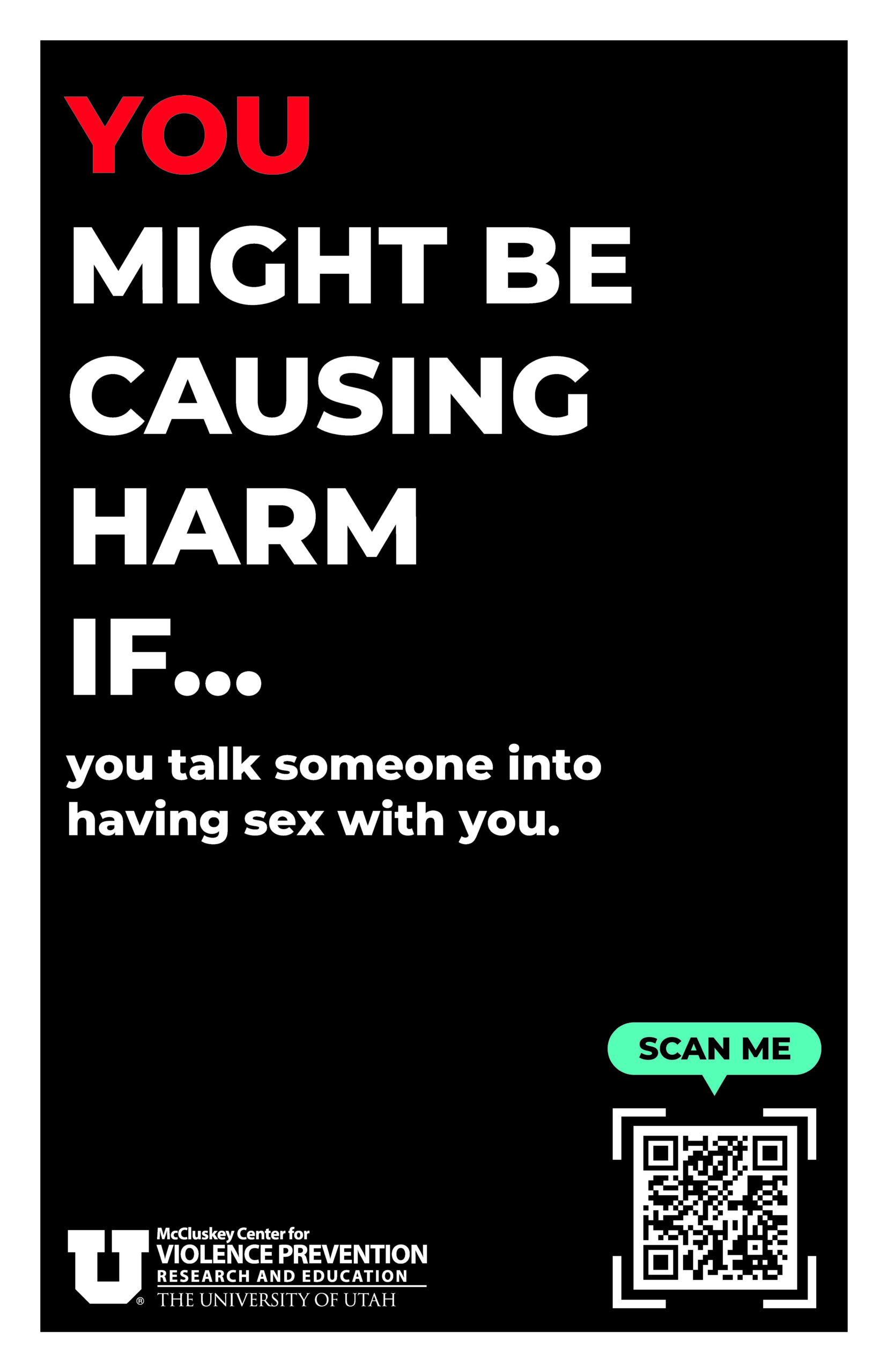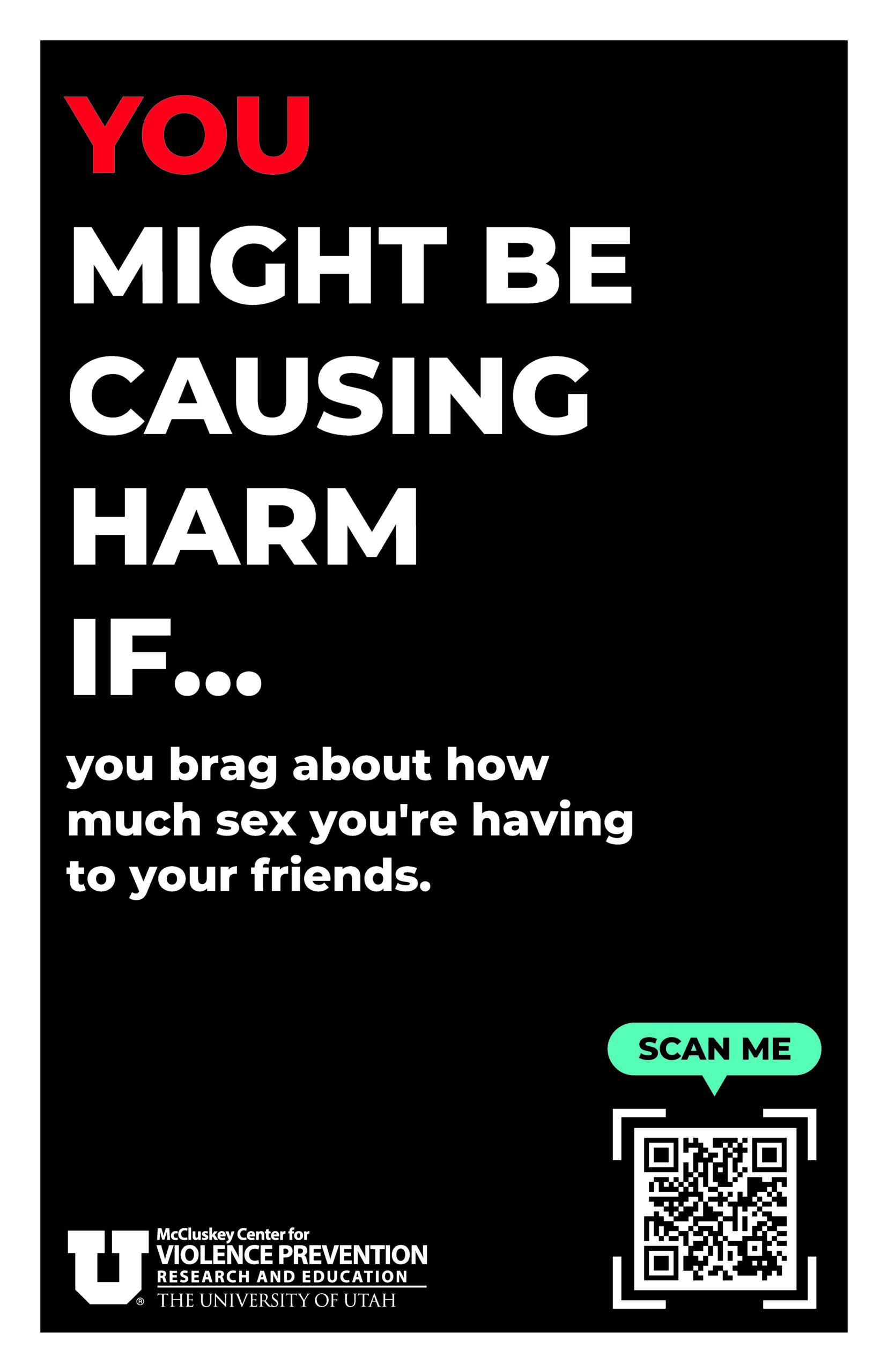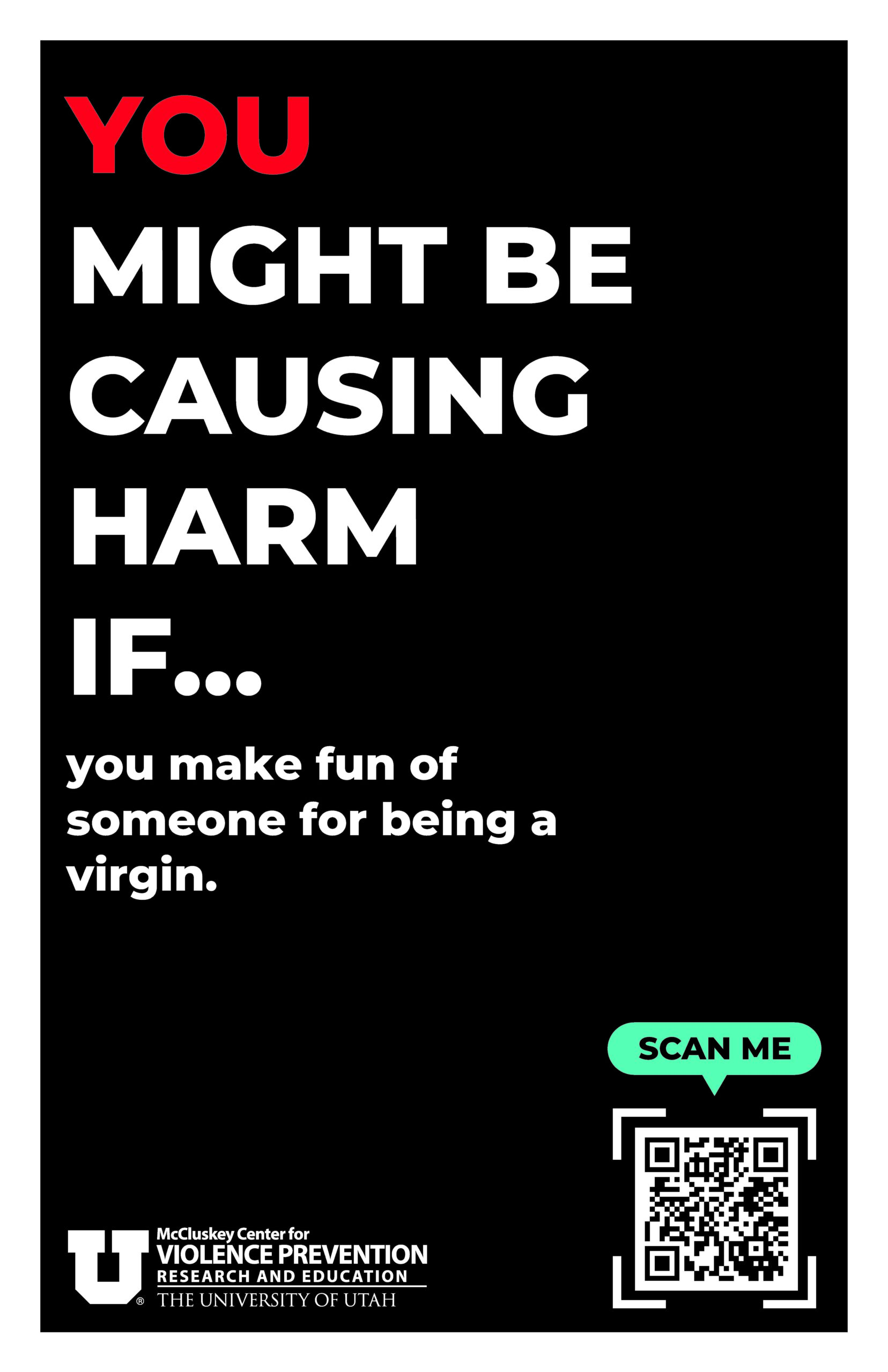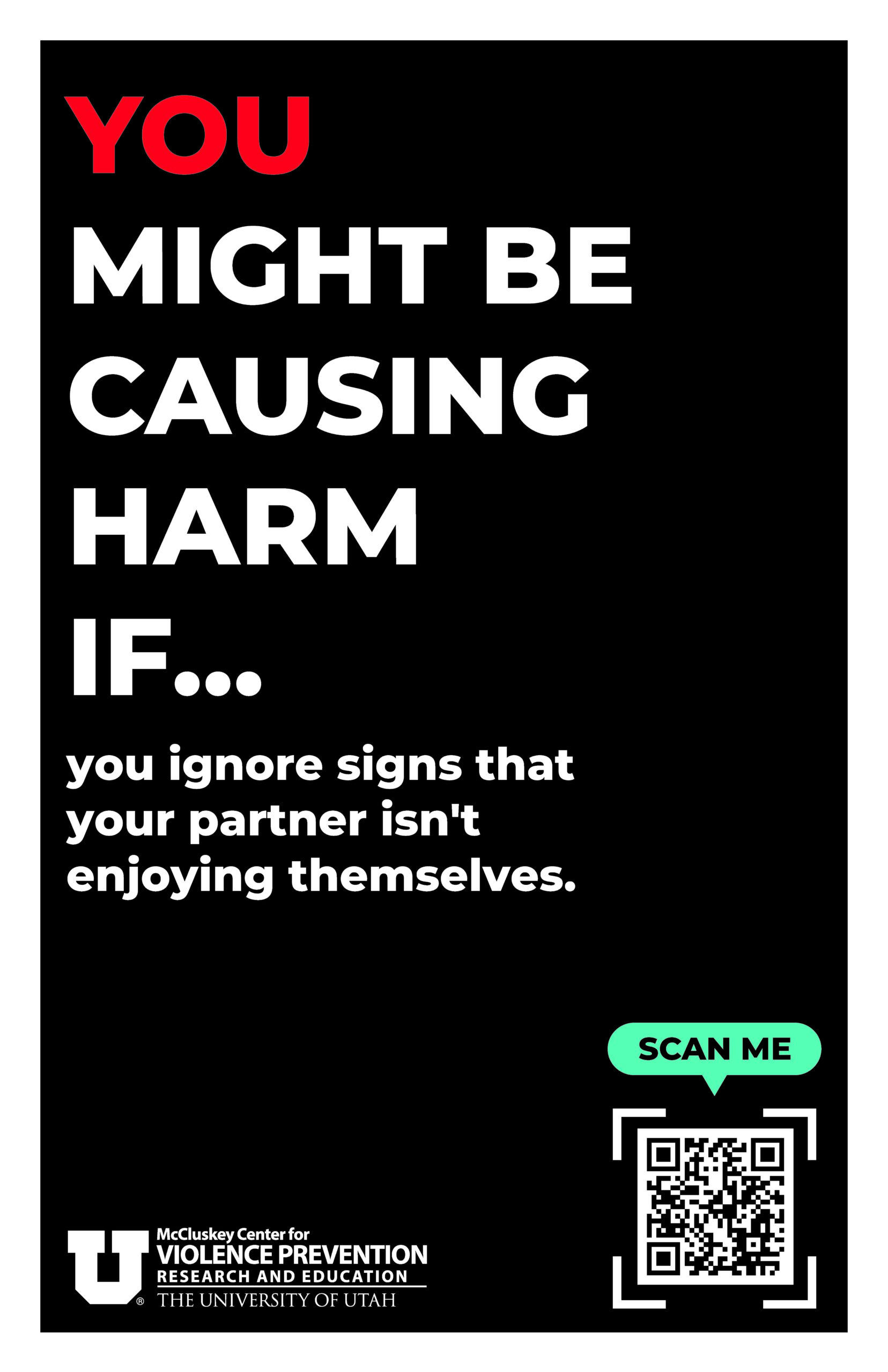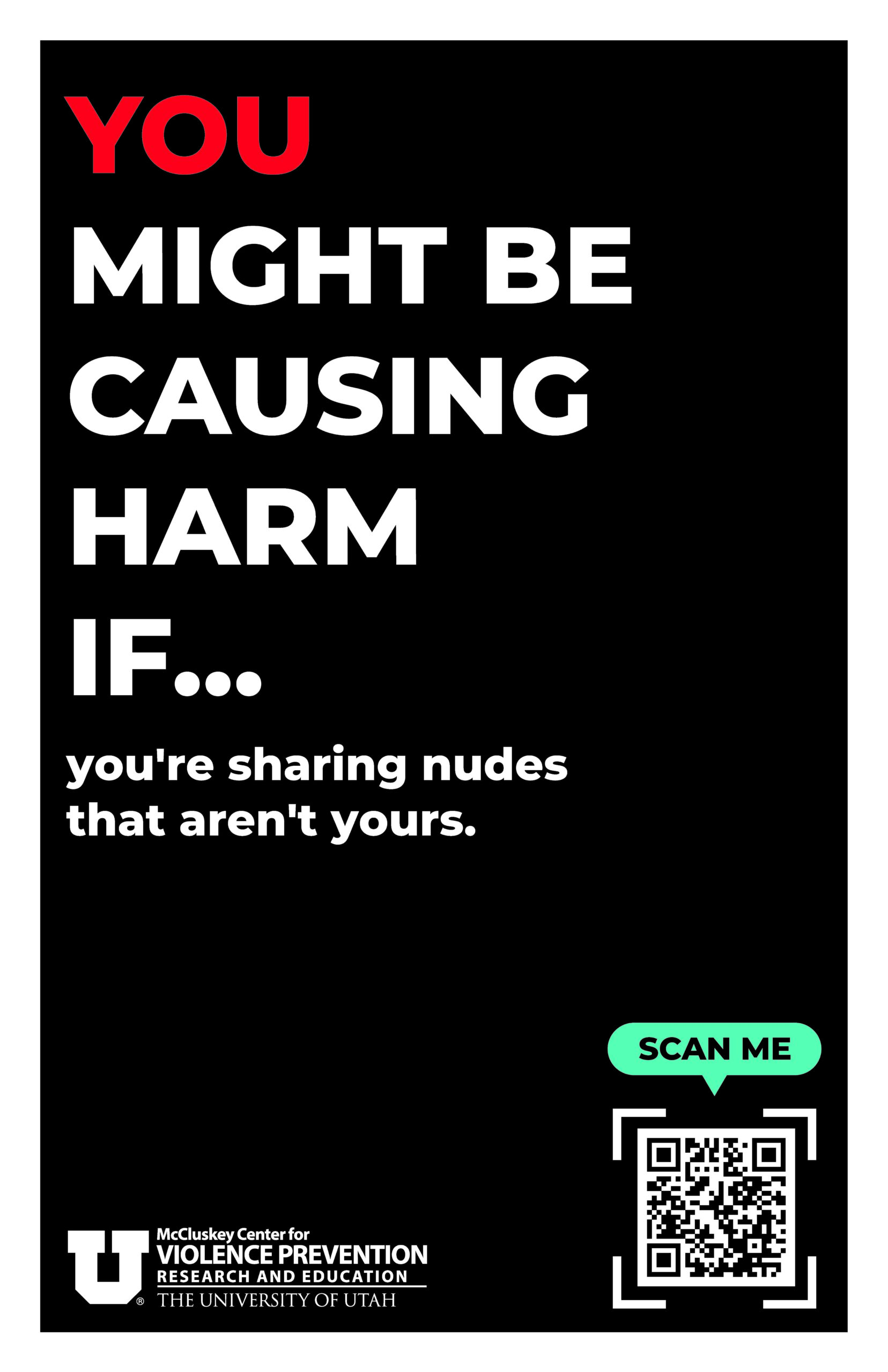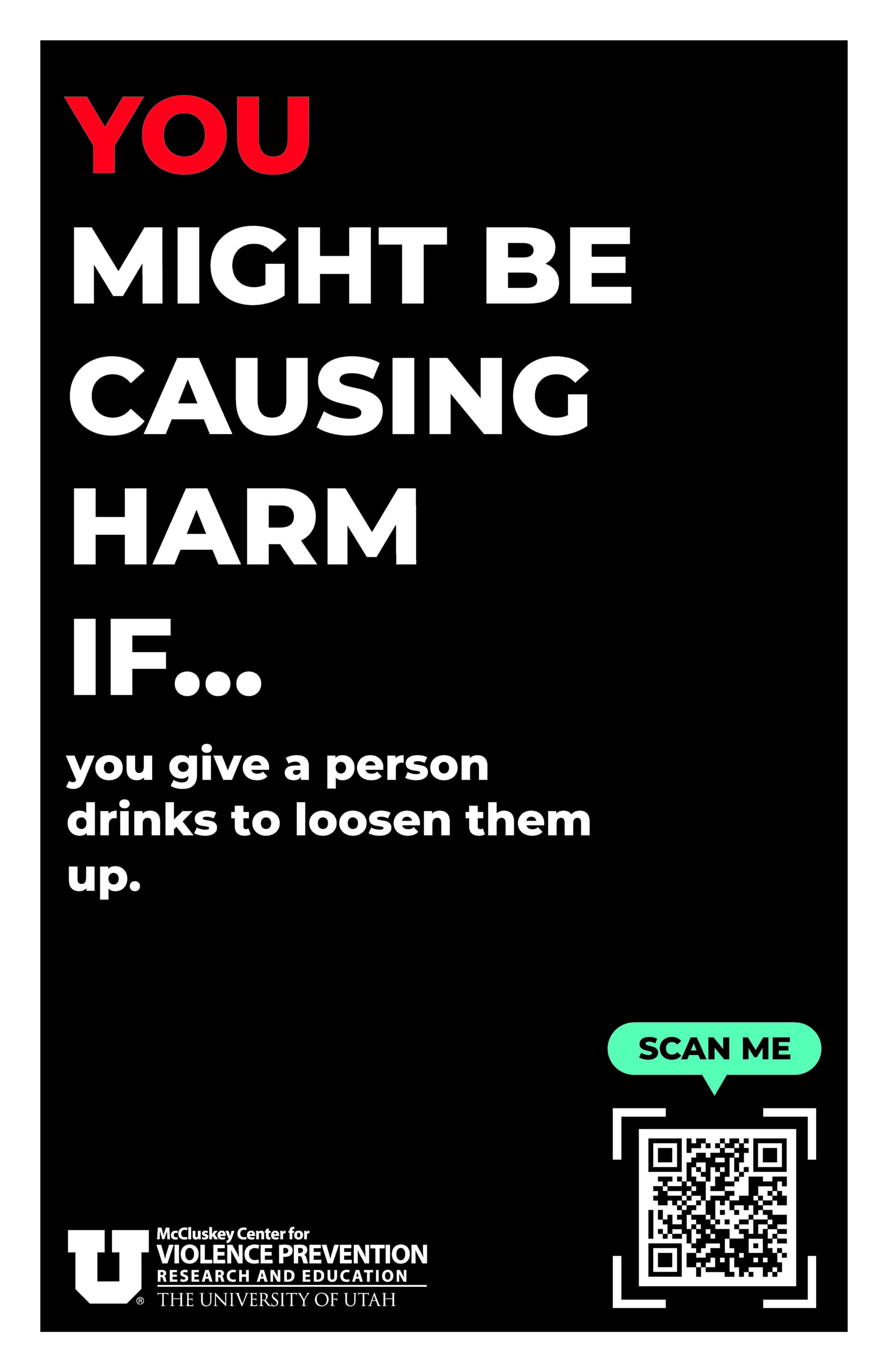Welcome! Thank you for finding your way to this page. You may be here because you saw a “You Might Be Causing Harm If…” poster on the University of Utah campus or in the community, or you may be here because someone told you about this campaign.
The intent of the “You Might Be Causing Harm If… ” campaign is to bring attention to behaviors that have been normalized, yet actually cause harm. The staff, with the students taking the lead, identified eight behaviors that could be harmful and then wrote posts about their topic, describing how it is harmful. These posts are linked on the posters through a QR code. While these behaviors may seem insignificant, they can lead to behaviors that push other peoples’ boundaries and lead to bigger acts of harm.
In fact, researchers have identified several characteristics associated with people who cause harm, especially among college students. In particular, this campaign attempts to address some of those characteristics, including:
- Those who do not know they are causing harm.
- Those who have been socialized to ignore complex emotions, ignore boundaries or feel entitled to get what they want.
Here are the eight posters, all linked to their specific blog posts, from the “You Might Be Causing Harm If…” campaign:
Did this poster campaign make you feel angry or lead to a realization that you have caused harm? Did you feel your heart beating fast, your palms get sweaty or butterflies in your stomach? Those are signs of discomfort. We encourage you to reflect on why these feelings might be coming up for you.
It takes a lot for someone to own that they have caused harm. We believe that you can change your behavior and be supported in not causing additional harm to others. Here are a few resources for you to get started:
University of Utah Counseling Center
If you have questions or want to engage in additional dialogue about this poster campaign you can reach out to the MCVP via email at cvp@utah.edu.

